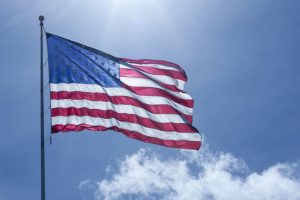Even as several countries, including India and the United States have seen Hydroxychloroquine as a potential cure for the Coronavirus infection, the World Health Organization (WHO) has decided to “temporarily” suspend clinical trial of the anti-malaria drug on COVID-19 patients.
WHO Director-General Tedros Adhanom Ghebreyesus said that a clinical trial of Hydroxychloroquine (HCQ) on COVID-19 patients has come to “a temporary pause”, while the safety data of the the anti-malaria drug was being reviewed.
Advertisement
According to the WHO chief, The Lancet medical journal on May 22 had published an observational study on HCQ and chloroquine and its effects on COVID-19 patients that have been hospitalized.
The authors of the study reported that among patients receiving the drug, when used alone or with a macrolide, they estimated a higher mortality rate.
“The Executive Group of the Solidarity Trial, representing 10 of the participating countries, met on Saturday (May 23) and has agreed to review a comprehensive analysis and critical appraisal of all evidence available globally,” Tedros said in a virtual press conference on Monday.
The review will consider data collected so far in the Solidarity Trial and in particular robust randomized available data, to adequately evaluate the potential benefits and harms from this drug, he said.
“The Executive Group has implemented a temporary pause of the HCQ arm within the Solidarity Trial while the safety data is reviewed by the Data Safety Monitoring Board. The other arms of the trial are continuing,” Tedros added.
WHO initiated the Solidarity Trial, a plan to evaluate the safety and efficacy of four drugs and drug combinations against COVID-19 more than two months ago, which includes HCQ.
According to the WHO, over 400 hospitals in 35 countries are actively recruiting patients and nearly 3,500 patients have been enrolled from 17 countries under the Solidarity Trial.
Tedros added that the safety concern over the drug related only to the use of HCQ and chloroquine in COVID-19, and “these drugs are accepted as generally safe for use in patients with autoimmune diseases or malaria”.
“WHO will provide further updates as we know more,” he added.
Meanwhile, the United States’ Food and Drug Administration has cautioned against the use of Hydroxychloroquine on COVID-19 patients even as President Donald Trump, who has touted it as a “game changer,” advocated for an additional review.
Hydroxychloroquine, first approved in 1955, provided no benefit and potentially higher risk of death for patients at US veterans hospitals, according to an analysis that was submitted for an expert review in April.
The FDA’s announcement came a day after the European Union’s drug regulator warned of side effects of the drug, urging medical professionals to closely monitor patients on the medicine.The FDA has allowed healthcare providers to use the drugs for COVID-19 through its emergency use authorization, but has not approved them to treat the disease.
The US acquired 29 million doses of Hydroxychloroquine from India, and at the request of President Donald Trump, it cleared the export of 35.82 lakh tablets of the drug to the US along with nine metric tons of active pharmaceutical ingredient or API required in the manufacturing of the drug.
Donald Trump himself has claimed to be taking the medicine.
Meanwhile, India has decided to expand the use of Hydroxychloroquine as prophylactic for asymptomatic healthcare workers as well those engaged in fighting COVID-19 coronavirus.
A revised government advisory last week recommended use of hydroxychloroquine as a preventive medication for asymptomatic healthcare workers working in non-COVID-19 hospitals, frontline staff on surveillance duty in containment zones and paramilitary/police personnel involved in coronavirus infection related activities.
The revised advisory issued by the ICMR, however, cautioned that the intake of the medicine should not instill a sense of false security.
Earlier, the Union Health Ministry had stated that HCQ is recommended only under exceptional circumstances and for the protection of high-risk individuals as the drug was found to be effective against Coronavirus only in pre-clinical laboratory studies.
Ever since the deadly virus spread across nations, Hydroxychloroquine has become one of the most highly demanded drugs worldwide. India, the world’s main supplier of generic drugs, has been finding it difficult to cope with the requests for Hydroxycholoquine received from nearly 30 nations.
Globally, 5.4 million people have been infected with novel Coronavirus and nearly 3.4 lakh people have died, according to Johns Hopkins data. With 1,662,302 cases, United States has maximum number of COVID-19 patients, followed by Brazil with 374,898 cases, and Russia at 353,427 cases.
















